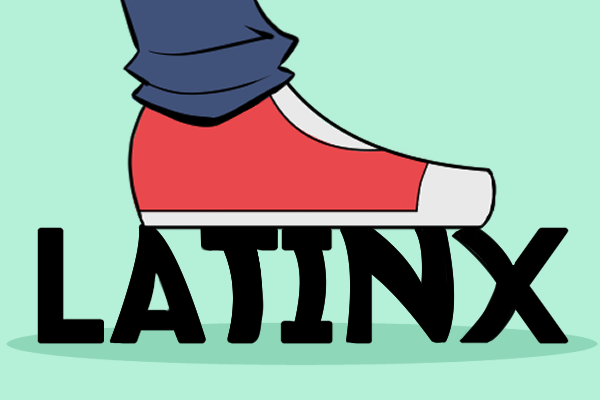OPINION: Dallas College, stop using Latinx
October 17, 2022
The end of Hispanic Heritage Month concludes the painful saga of perversions against my language. On one hand, you have sincere efforts to honor Latinos, but the generosity can’t distract me from the corporations and organizations who latch onto inaccuracies for brownie points.
Dallas College’s usage of Latinx falls under the latter category, and that needs to change.
But first, we need to look at why and where people started Latinx.
Although scholars can’t track down the first usage of Latinx, its first appearance in academia was in the 2013 essay “The Complexity of the ‘X’ in Latinx,” written by Cristobal Salinas Jr. The essay covered a growing trend of Latino students identifying with the -X marker.
Discussions of gender-neutral expansions are traced back to Chicano movements. These groups are often progressive and lead social justice movements in Latino communities.
Because of recent discourse to make Spanish “gender neutral,” schools with predominant Chicano populations have taken to adopting the -X marker. Other colleges have followed suit, and now businesses are tagging along.
But adopting Latinx creates the message that my language promotes erasure of transgender and nonbinary individuals.
Spanish is a romance language, meaning that it’s “gendered,” but not to create a binary. Grammatical gender serves to categorize nouns.
For example, the default rule to naming a group of people in Spanish is the masculine -o. And there’s other rules for how to define a person.
Perceiving ‘masculine’ or ‘feminine’ as a definition for identity is misinterpreting the use for gendered language: it breaks up nouns into classes, which helps to specify the subject of a sentence.
Anything with nouns would need revisions. Words like ‘amigo’ and ‘contigo’ becomes ‘amigx’ and ‘contigx.’
Not just endings but also infinitives and suffixes. We’re talking creating an entirely new framework of language.
Latinx on its own is difficult to pronounce. English-speaking Latinos have a leg up by virtue of speaking in the language where Latinx found its roots.
The Royal Spanish Academy has rejected the adoption of gender-neutral alternatives in style manuals. When asked about this decision in 2018, the director said, “the problem is we’re confusing grammar with machismo.”
When I see Dallas College lean into the usage of Latinx, I wonder if there’s any Latino students who feel seen by the college, because I certainly don’t.
According to a 2020 report by the Pew Research Center, 25% of Latinos have heard of Latinx, but only 3% use it.
As a transgender individual who struggles with pronouns, even at home, I still prefer the way my language is.
I live in a home that rarely speaks English. The nuances in my mother tongue feel independent from my own perception of gender identity.
Even then, Latinx undermines the defaults that have been around for centuries. Using ‘Latin’ as an alternative is a valid option.
A defining argument for adopting Latinx is including transgender Latinos individuals – as if I’ve been erased because of my own tongue.
Some fellow transgender Latinos might find comfort in the -X marker, but I ask you to consider what adoption means for the language.
It’s not truly inclusive if it means forcing a language to update under a dominant culture’s standards.
Dallas College’s inclusivity is worth celebrating. Not only can I befriend Latinos, but also transgender individuals. I haven’t been in an environment this inclusive before.
Yet it feels counter-productive when that same institution adopts Latinx. It’s insincere to sterilize my language for a nonexistent problem.
I’m fed up with organizations butchering my language for a half-baked attempt at inclusivity.
Dallas College, including Latinos means preserving my language’s grammar without comparing apples to oranges.
To include people like me, a transgender Latina, celebrate how Spanish’s current rules respect fluid gender identities without needing to update the language.





